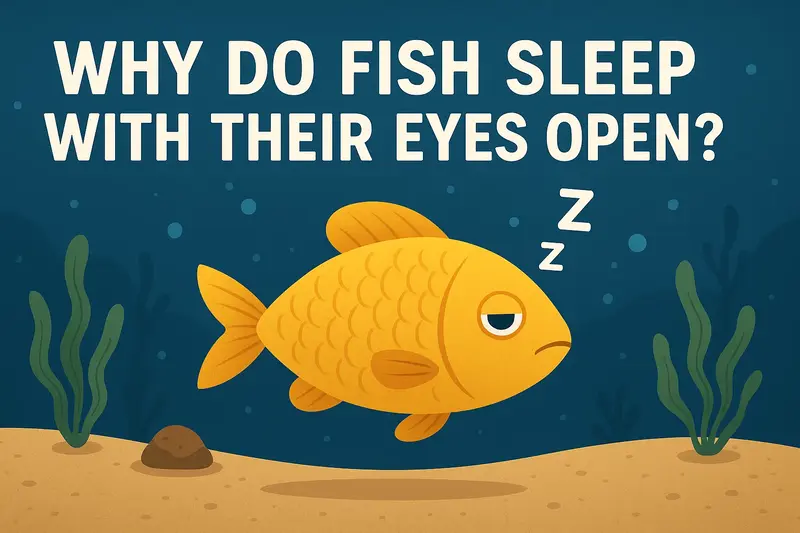To humans, closing one's eyes is a universal sign of sleep. However, fish appear to remain wide-eyed even when resting. Does this mean fish don’t sleep, or do they sleep with their eyes open? This article explores the physiological and behavioral reasons behind this phenomenon from a zoological perspective.

Fish do sleep, though not in the same way mammals do. Their sleep is classified as "behavioral rest" or "quiescent state," characterized by:
Reduced movement
Lower responsiveness to stimuli
Decreased metabolism
These meet the general criteria for sleep.
Fish lack distinct REM and non-REM phases, but some species show rhythmic sleep patterns, especially during the night.
Most fish naturally lack eyelids. Therefore, even when sleeping, their eyes remain uncovered and appear open.
Since they live in water, fish eyes are always hydrated and do not require blinking to maintain moisture.
Fish are prey for many predators. Appearing awake may serve as an evolutionary strategy to avoid predation by masking their vulnerability.
Diurnal fish (e.g., goldfish): Rest at night
Nocturnal fish (e.g., some catfish): Rest during the day
Sleeping fish may:
Remain motionless in vegetation, rocks, or substrate
Change color for camouflage
Reduce gill movement
Parrotfish secrete a mucous cocoon at night, possibly to deter parasites
Some sharks sleep while swimming, using passive muscle reflexes to keep moving and breathing
Although fish lack a cerebral cortex, regions like the hypothalamus and midbrain exhibit rhythmic changes during rest.
Melatonin plays a key role in regulating circadian rhythms in fish, increasing at night to induce sleep-like states.
Studies in zebrafish reveal that certain sleep-related genes, such as hypocretin, show reduced activity during rest.
Irregular lighting in aquariums can disturb circadian rhythms, affecting rest quality.
Without proper hiding spaces, fish may struggle to enter restful states and experience chronic stress.
Strong currents or vibrations can interrupt resting periods and negatively affect health.
Although fish keep their eyes open, they do indeed sleep. Their sleep is adapted to their aquatic environment and evolutionary pressures. Understanding how fish rest helps improve both scientific knowledge and practical care in aquaculture and home aquariums. Sleep, even with open eyes, is essential for their health and well-being.
animal tags: Fish sleeping
We created this article in conjunction with AI technology, then made sure it was fact-checked and edited by a Animals Top editor.